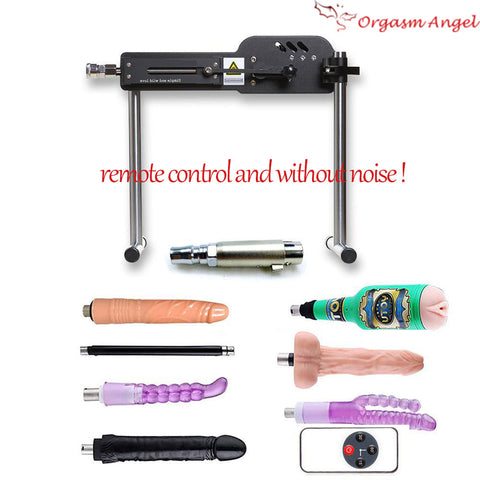Sex Machine For Women
The mood is right, and your partner tries to insert his penis, only to find it hurts more? It used to be as dry as the Sahara. What a disappointment! Itching or burning caused by vaginal dryness is a problem many women may face. This article will take you through the causes of vaginal dryness and possible solutions.
Causes of vaginal dryness
The normal vagina is covered with a thin layer of clear fluid that lubricates the vagina. The secretion of this fluid is mainly controlled by estrogen. When estrogen is insufficient, the vagina may become dry due to insufficient lubrication. Because menopause reduces the production of estrogen, menopausal women are more prone to vaginal dryness. In addition to menopause, the following conditions can reduce the production of estrogen:
- Birth and lactation
- Use vaginal irrigation products.
- Lack of love for foreplay
- Radiation or chemotherapy
- Ovariectomy
- Drugs that lower estrogen
Try these two techniques. Love after vaginal dryness
There are many ways to improve vaginal dryness. If you want to enjoy sex instead of taking estrogen therapy, there are two ways to do this:
- Get your foreplay in: As mentioned earlier, insufficient foreplay can lead to inadequate vaginal lubrication. If your partner doesn't care much about foreplay and just wants to get started, don't let him. Not only does foreplay help the body "warm up," it can also make both partners more engaged in the sex and achieve higher levels of satisfaction.
- Use lubricants: Consider using lubricants to reduce the discomfort of insertion. Water-based lubricants are recommended to prevent latex condoms from breaking down. In addition, water-based lubricants are easier to clean after the event than oil-based lubricants.
Three medications to keep your vagina moist
Among estrogen supplements, topical estrogen is the most commonly used. It should be noted that estrogen supplements may increase the chances of breast cancer, heart disease and stroke, according to a 2002 study. However, another study from Ovid Technology showed that continuous estrogen supplementation was required for more than three years to increase cancer risk. But short-term supplement should avoid long-term continuous use.
In addition, estrogen is reduced due to fertility and lactation conditions, and estrogen supplementation may cause decreased milk production. Readers who are pregnant, trying to become pregnant, or have breastfeeding needs are advised to avoid using these products. Readers in doubt can ask their doctor if they recommend using the hormone supplement and wait until they know exactly how it is used and what the risks are. The following three topical estrogens are common and may vary depending on individual circumstances, dose or medication. Please read the instructions carefully or consult your doctor before use.
- Vaginal ring: A vaginal ring is an elastic ring. Just like moon cups or tampons, they need to be used inside the vagina. By releasing the estrogen contained in the ring, menopausal symptoms such as estrogen deficiency can be improved. In addition, some vaginal rings have contraceptive effects.
- Vaginal patch: similar to a vaginal ring, absorbed through the skin. Through a rod-like dispenser, the pill is placed into the vagina to allow the estrogen to be absorbed.
- Vaginal ointment: It is similar to a topical ointment, except that it must be applied to the vagina through a applicator. It's also an estrogen supplement.










